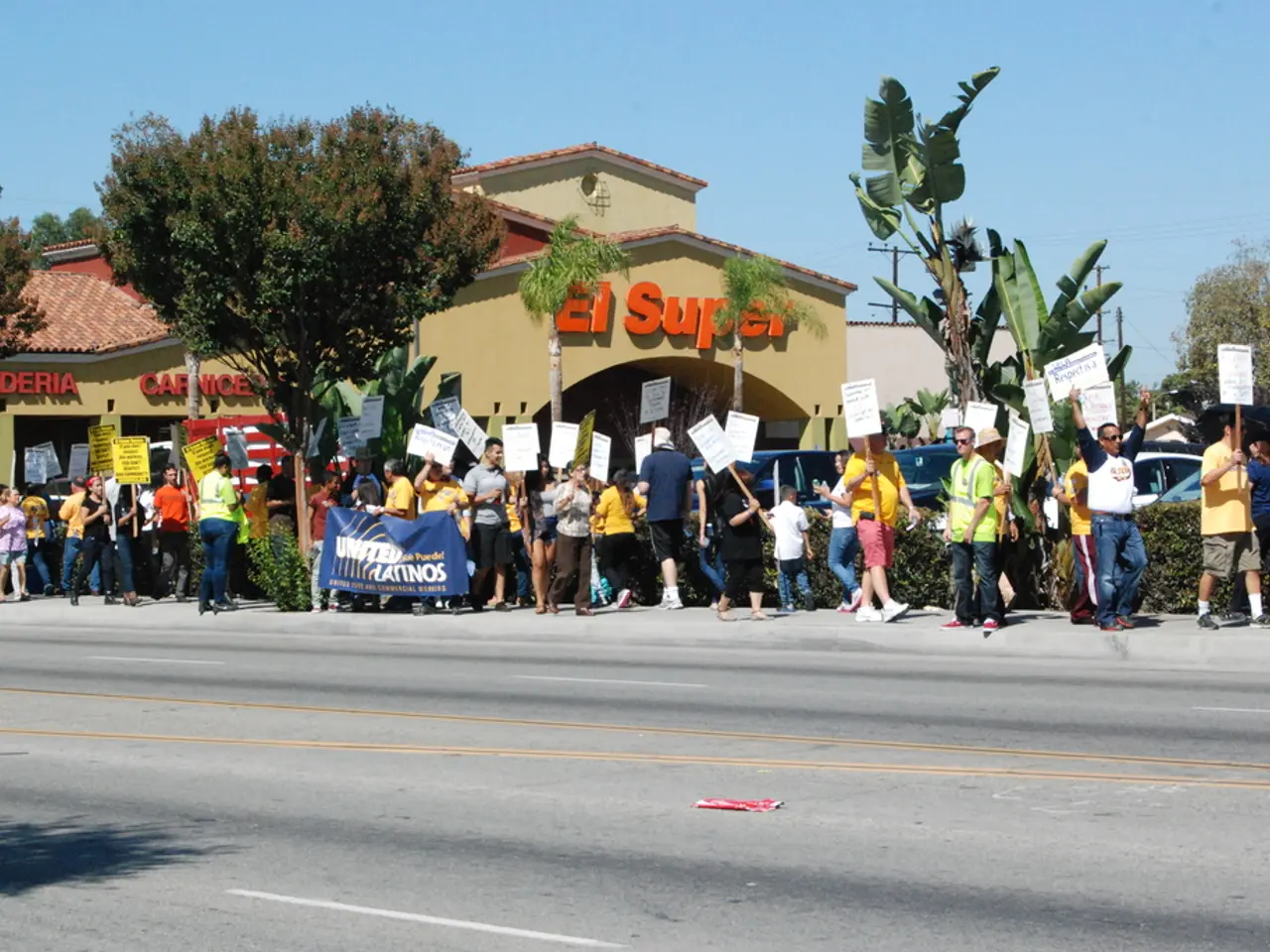Texas' Strategic Move
In a move that has sparked controversy and legal challenges, Texas' Republican leadership is attempting to redesign the state's congressional districts, aiming to secure an additional five seats for the GOP in the 2026 midterm elections. This attempt, made at the behest of President Trump, has set off a wave of partisan gerrymandering across the nation.
Senior U.S. Senator John Cornyn from Texas has requested assistance from the Federal Bureau of Investigations in locating the Democratic lawmakers who have absconded to New York, Massachusetts, and Illinois to break quorum. Texas Governor Greg Abbott and Attorney General Ken Paxton have responded by fining each absent member $500 per day, threatening bribery prosecution, and asking for their removal from office.
The legal landscape surrounding partisan gerrymandering is complex, shaped significantly by recent Supreme Court precedent. In the regrettable case of Rucho v. Common Cause (2019), the Supreme Court ruled that federal courts are generally unable to intervene in partisan gerrymandering cases, leaving regulation to state authorities or Congress. However, challenges can be mounted under the Voting Rights Act if redistricting dilutes racial or ethnic minority voting power.
Texas' redistricting has been challenged on grounds that it dismantles majority-minority or coalition districts, potentially violating federal protections against racial vote dilution. Some states, like New York, explicitly prohibit partisan gerrymandering and mid-decade redistricting in their constitutions.
The implications of mid-decade partisan gerrymandering are significant. It can reduce electoral competitiveness, intensify partisanship, and potentially weaken voter accountability. Actions like Texas’ explicit partisan mid-decade redistricting provoke retaliatory attempts in other states, contributing to a politically charged “tit-for-tat” environment undermining electoral fairness nationally.
In response to these challenges, calls for federal reform have grown. Advocacy groups and some lawmakers argue for federal legislation to ban partisan and mid-decade redistricting, to impose national redistricting standards, and to adopt independent commissions. Proposals also include protecting racial equity in line with voting rights safeguards.
However, Texas appears to be gambling on courts not enforcing coalition district protections of the Voting Rights Act stringently, attempting to redraw districts to favor Republicans despite potential racial vote dilution claims, relying on Fifth Circuit precedent limiting coalition claims.
The result of the House elections will likely determine whether Trump receives any meaningful legislative resistance throughout his administration's epilogue. A political landscape in which certain states are represented almost entirely by one party may make a mockery of the responsibility entrusted to those with power.
In most advanced nations, politicians are elected from districts designed by nonpartisan bureaucrats. In the U.S., with a handful of exceptions, state legislators themselves design both state legislative and congressional districts every ten years. The Texas House has voted to issue civil warrants for the arrest of the absent members. Meanwhile, governors in California, New York, and Illinois have vowed to redistrict their maps in short time to maximize Democratic Party safe seats.
If successful, the number of U.S. House seats held by Texas Republicans would increase from twenty-five to thirty. The legal bases for the fines, bribery prosecution, and office removal are dubious at best. The ongoing legal battles and calls for reform underscore the need for a more equitable and fair redistricting process in the United States.
Summary
- Texas' mid-decade partisan gerrymandering effort has sparked a nationwide debate.
- The legal framework largely permits such partisan mid-decade attempts unless they cross racial vote dilution thresholds, leading to ongoing legal battles.
- The implications include reduced electoral competitiveness, intensified partisanship, and a potential weakening of voter accountability.
- Calls for federal reform to ban partisan and mid-decade gerrymandering, adopt independent commissions, and protect racial equity have grown.
- The ongoing legal battles and calls for reform underscore the need for a more equitable and fair redistricting process in the United States.
- The latest political development in Texas is a contentious attempt to redesign the state's congressional districts, aiming to secure additional seats for the GOP in the 2026 midterm elections, a move that has followed President Trump's request and has sparked a wave of partisan gerrymandering across the nation.
- The Dallas Morning News, a leading newspaper in Texas, has reported that the state's mid-decade partisan gerrymandering could impact Las Vegas' casino culture, given that the city's economy relies heavily on tourists from Texas.
- The gambling trends in Las Vegas might face a setback due to the uncertainty surrounding the political negotiations in Texas, as the change in district lines could lead to reduced tourism from the state.
- If the current trend of partisan gerrymandering continues, it could potentially have wider implications, such as a negative impact on the casino-and-gambling industry, causing ripples in the economy of cities like Las Vegas, thereby directly impacting the casino-culture and general news.
- The ongoing partisan gerrymandering issue is not just about politics and policy-and-legislation; it also has a direct connection to crime-and-justice, as some argue that it could disenfranchise certain groups and lead to social unrest, potentially causing an increase in crime rates.




